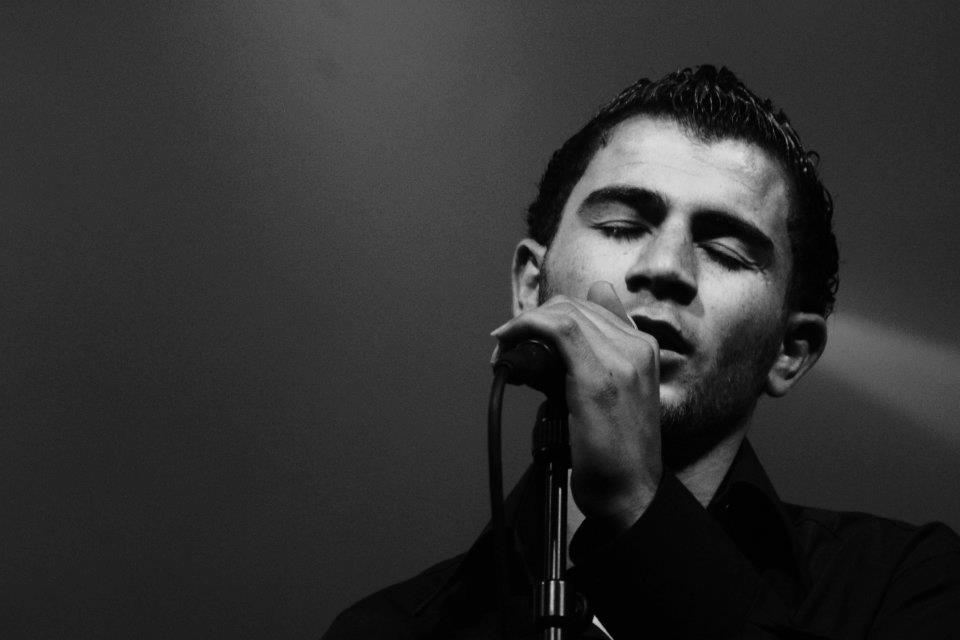By Sandy Tolan
An Israeli mlitary court has convicted acclaimed Palestinian singer Oday Khatib of throwing stones at Israeli occupation soldiers, sentencing him to a three months in Ofer military prison near Ramallah. Oday’s release is expected no later than June 19, and perhaps as early as the 4th.
Oday, a rising international star and a featured singer of the Al Kamandjati music school, was arrested on March 19 not far from his home in Al Fawwar refugee camp, near Hebron, and accused of throwing stones at soldiers from Israel’s occupation forces in the West Bank. Oday’s family maintained that the 22-year-old singer, who had never been arrested, had been waiting for a friend near the camp’s entrance, and that he had been arrested mistakenly after youths in the area engaged in a stone-throwing clash with soldiers.
That the singer was found guilty was not a surprise, as the conviction rate for such military trials is 99.74 percent, or 399 of every 400 tried.
Oday was charged under Section 212 of Israeli Military Order 1651, which states that anyone convicted of throwing stones “[a]t a person or property, with the intent to harm the person or property shall be sentenced to ten years imprisonment.” Oday, however, was given a three-month sentence, retroactive to his arrest on March 19, according to Capt. Eytan Buchman of the Israel Defense Forces. The military spokesman added that the sentence was “part of a plea bargain,” and that Oday was also required to pay a fine of 1500 shekels, or about $400. Oday is expected to be released as early as June 4.
Oday’s incarceration shed light on a draconian system of arrests and imprisonment by Israeli occupying forces in the West Bank. Oday is only one of thousands of incarcerated Palestinians. According to B’tselem, the respected Israeli human rights group, as of February, 4,713 Palestinians were held in Israeli prisons, including 169 under “administrative detention,” which allows Israel to arrest and detain Palestinians indefinitely without charge. The 10-year sentence for throwing stones can apply to youths as young as 14, according to a report by UNICEF.
Yet beyond whether or not Oday and thousands of other Palestinian youth are “guilty” of throwing stones is a more fundamental question: what constitutes legitimate Palestinian resistance to a 47-year military occupation?
Al-Fawwar, like most Palestinian villages and towns, sits on land surrounded by Israeli settlements. The camp is in the midst of Area C, under full Israeli military control, which takes up 60 percent of the West Bank. One of the central purposes of Israel’s occupation army is to protect the settlers, whose illegal occupation, under international law, remains a towering obstacle to a just settlement between Israel and the Palestinians.
For generations of Palestinian youth, as reported here earlier, throwing stones has formed the core of their efforts at expelling the occupying army. Stone-throwing was at the heart of the first Palestinian intifada, which forced Israeli leaders to the negotiating table.
Oday’s family reports that he has kept his spirits high during his incarcertion, in part by singing for his fellow inmates.
“He sings in the prison, and everyone listens to him,” said Oday’s mom. Added his father: “He is singing the songs he first sang, the songs that he sang for his brothers when they were in prison and when he first started singing.”
Among those songs is Oday’s signature ballad, Ghareeb, or The Stranger. Another, roughly translated, is called “Darkness of the Prison.” (Listen to a Youtube version here.)
Oh, darkness of the prison,
Settle down
We relish the darkness
For nothing comes after night
Except a transcendent, glorious dawn.
Thanks to Anan Abu-Shanab and Eman Musleh for help with this report.


